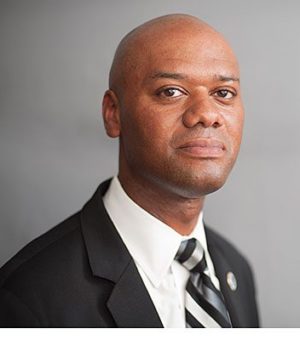
The Council of State Governments Justice Center applauds members of the U.S. Senate for introducing the Justice and Mental Health Collaboration Reauthorization Act of 2022, a bill that would reauthorize the Justice and Mental Health Collaboration Program (JMHCP). The bipartisan Senate legislation, introduced by U.S. Sen. John Cornyn (R-TX) and U.S. Sen. Amy Klobuchar (D-MN), expands and improves the successful Mentally Ill Offender Treatment and Crime Reduction Act (MIOTCRA) to ensure our criminal justice and mental health systems have the tools they need to serve some of our nation’s most vulnerable individuals.
JMHCP, which is authorized under MIOTCRA, was created by the U.S. Department of Justice’s Office of Justice Programs, Bureau of Justice Assistance (BJA) to improve access to effective treatment for people with mental health needs and to increase public safety.
Joining Senators Cornyn and Klobuchar as original cosponsors are Senators Jerry Moran (R-KS); Sheldon Whitehouse (D-RI); Thom Tillis (R-NC); Majority Whip Dick Durbin (D-IL); Chair of the Senate Judiciary Committee, Chuck Grassley (R-IA); Ranking Member of the Senate Judiciary Committee, Susan Collins (R-ME); and Catherine Cortez Masto (D-NV).
Collectively, state and local governments use these grants for a broad range of activities, including establishing diversion programs and mental health courts, creating or expanding community-based treatment programs, supporting the development of curricula for police academies and orientations, or providing in-jail treatment and transitional services. Additionally, grant funds may be used to train law enforcement to help them identify and improve their responses to people experiencing a mental health crisis. MIOTCRA was reauthorized in 2008 and again in 2016 with bipartisan support.
The Justice and Mental Health Collaboration Reauthorization Act of 2022 would
- Strengthen support for mental health courts and crisis intervention teams;
- Support diversion programming and training for state and local prosecutors;
- Strengthen support for co-responder teams;
- Support the integration of 988 into the existing public safety system;
- Amend allowable uses to include suicide prevention in jails and information-sharing between mental health systems and jails/prisons;
- Amend allowable uses to include case management services and supports; and
- Clarify that crisis intervention teams can be placed in 911 call centers.
The legislation has been endorsed by Addiction Policy Forum, American Foundation for Suicide Prevention, American Jail Association, American Probation and Parole Association, Major Cities Chiefs Association, Major County Sheriffs of America, Miami Center for Mental Health and Recovery, National Alliance on Mental Illness, National Association of Counties, National Association of Police Organizations, National Association of State Alcohol and Drug Abuse Directors, National Association of State Mental Health Program Directors, National Conference of State Legislatures, National Criminal Justice Association, National District Attorneys Association, National League of Cities, National Sheriffs’ Association, and Treatment Alternatives for Safe Communities, among other organizations.
Photo by trekandshoot via Shutterstock.
About the author

The sharp rise in school shootings over the past 25 years has led school officials across the U.S.…
Read MoreA three-digit crisis line, 988, launched two years ago to supplement—not necessarily replace—911. Calling 988 simplifies access to…
Read MoreIt would hardly be controversial to expect an ambulance to arrive if someone called 911 for a physical…
Read More Taking the HEAT Out of Campus Crises: A Proactive Approach to College Safety
Taking the HEAT Out of Campus Crises: A Proactive Approach to College Safety
The sharp rise in school shootings over the past 25 years has led school officials across the U.S. to take a closer look at ways to keep students safe. For Chaffey College in Rancho Cucamonga, California, a tragic incident at a nearby university hit close to home and spurred campus leaders to revisit their own school’s threat assessments and crisis responses.
Read More From 911 to 988: Salt Lake City’s Innovative Dispatch Diversion Program Gives More Crisis Options
From 911 to 988: Salt Lake City’s Innovative Dispatch Diversion Program Gives More Crisis Options
A three-digit crisis line, 988, launched two years ago to supplement—not necessarily replace—911. Calling 988 simplifies access to services when people are seeking help for themselves or loved ones with suicidal thoughts, behavioral health concerns, or substance use-related crises.
Read More Matching Care to Need: 5 Facts on How to Improve Behavioral Health Crisis Response
Matching Care to Need: 5 Facts on How to Improve Behavioral Health Crisis Response
It would hardly be controversial to expect an ambulance to arrive if someone called 911 for a physical health emergency. And yet, for years, the default responders for a behavioral health emergency have been law enforcement officers, not behavioral health professionals.
Read More









